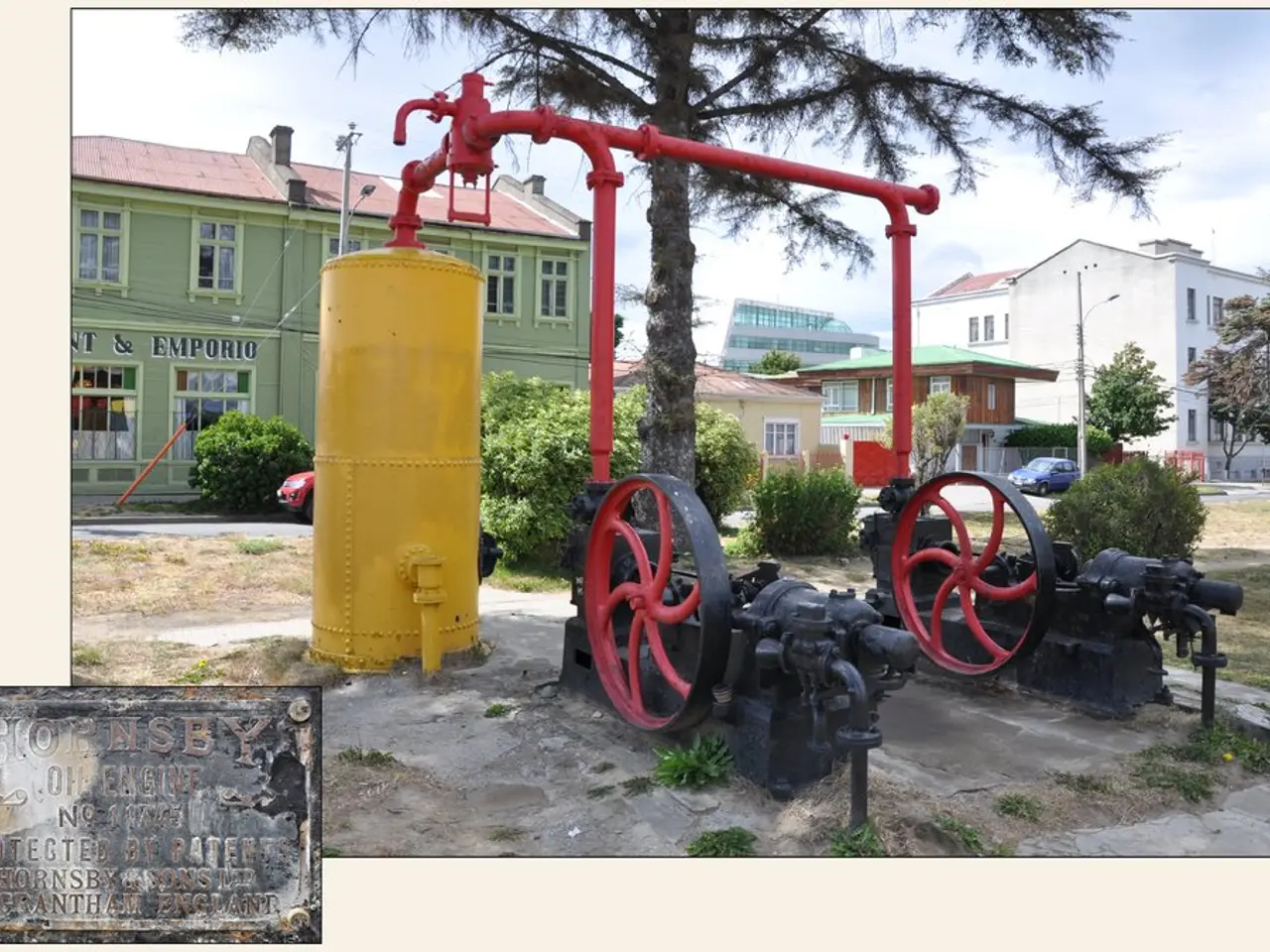Enhancing AI Solutions Guided by Local Leadership for Climate Change Mitigation Strategies
In a significant stride towards combating climate change, the Climate Technology Centre and Network (CTCN) is spearheading the effective implementation of emerging locally-led AI solutions in developing countries. The CTCN's strategies focus on making these technologies accessible, culturally relevant, user-centered, and contributing to fair and equitable climate outcomes.
The CTCN's approach encompasses several key strategies and best practices. One such strategy is promoting open-source, AI-powered solutions tailored to local needs. The AI for Climate Action Award 2025, a collaborative initiative with the UNFCCC Technology Executive Committee and Korea International Cooperation Agency (KOICA), is an example of this strategy, emphasizing open-source AI solutions specifically designed for least-developed countries and small island developing states [1].
Another strategy is leveraging local innovation hubs and capacity building. The CTCN supports these hubs, which foster local technological development, circumvent intellectual property (IP) barriers, and build indigenous capacity. Examples include support for solar dryer technology in Kenya and biogas digesters in Bangladesh, which were developed locally to address climate adaptation and mitigation needs while avoiding foreign licensing costs [3].
Facilitating knowledge exchange and technical expertise sharing is another crucial aspect of the CTCN's strategy. Over the past decade, the CTCN has engaged with over 110 countries to facilitate the deployment and exchange of climate technologies, strengthening global cooperation and ensuring solutions are contextually relevant to local realities [2].
The CTCN also emphasizes user-centered design and cultural sensitivity. AI solutions showcased by CTCN network members are locally-led and designed with community input, ensuring they are culturally appropriate and meet the specific socio-economic contexts of users. Such an approach increases adoption and effectiveness [4].
Best practices for fair accessibility and equitable outcomes include prioritizing open-source approaches, investing in capacity building and local expertise, ensuring inclusivity and equity in technology deployment, incorporating stakeholder engagement and participatory approaches, and monitoring and reporting impact transparently [3].
The CTCN's webinar in May 2025 showcased the growing diversity of grassroots innovation in AI and digital solutions for climate change. Decentralized Monitoring and Early Warning Systems, for instance, are empowering communities to collect and analyze environmental data independently [5]. AI-driven risk models and parametric insurance products are also extending coverage to local and informal climate stakeholders.
These frameworks emphasize assessing solutions against local user co-created benchmarks, integrated decolonized indigenous and local knowledge sharing, transparent model design, participatory validation, ethical and socio-economic impact analysis, capacity-building, and continuous monitoring [5].
By integrating these strategies and best practices, the CTCN is ensuring that emerging locally-led AI solutions for climate action are not only transformative but also accessible, culturally relevant, user-centered, and contribute to fair and effective climate outcomes in developing countries [1][3][4].
References: [1] Climate Technology Centre and Network (CTCN). (2025). CTCN's Strategies for Locally-Led AI Solutions. Retrieved from https://www.ctcn.int/strategies-for-locally-led-ai-solutions
[2] Climate Technology Centre and Network (CTCN). (2020). CTCN's Deployment and Exchange of Climate Technologies. Retrieved from https://www.ctcn.int/deployment-and-exchange-of-climate-technologies
[3] United Nations Framework Convention on Climate Change (UNFCCC). (2025). Best Practices for Fair Accessibility and Equitable Outcomes. Retrieved from https://unfccc.int/best-practices-for-fair-accessibility-and-equitable-outcomes
[4] World Intellectual Property Organization (WIPO). (2025). Capacity Building and Local Expertise Investment. Retrieved from https://www.wipo.int/sme/en/capacity_development/ip/
[5] Climate Technology Centre and Network (CTCN). (2025). Webinar on Locally-Led AI and Digital Solutions for Climate Change. Retrieved from https://www.ctcn.int/webinar-on-locally-led-ai-and-digital-solutions-for-climate-change
- The CTCN's strategies for implementing AI solutions in addressing climate change, such as the AI for Climate Action Award 2025, highlight the importance of open-source AI, leveraging local innovation, and promoting environmental-science and climate-smart agriculture in combating climate-change.
- By emphasizing user-centered design, cultural sensitivity, and fair and equitable climate outcomes, the CTCN's approach ensures that technology, including AI and digital solutions, is not only transformative but also tailored to local needs and engaging the environmental-science community for climate-change mitigation and adaptation.




